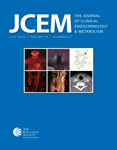Celiac.com 07/12/2005 - In an effort to determine the role of T-cells in celiac disease, researchers in Ireland examined the cells taken from the duodenal biopsies of both treated and untreated celiac disease patients. An assessment was made of the samples cell yields, and analyses were done to determine their viability and flow cytometric characteristics to quantify CD8 expression in the CD4CD8 T-cells.
Celiac.com Sponsor (A12):
The researchers were surprised to find that T-cell yields in the epithelial layer were not elevated in active, untreated celiac disease, although enterocyte counts decreased significantly, which gave the appearance of T-cell infiltration. There was a dramatic decrease in the number of CD4CD8 T-cells in untreated patients in both the epithelial layers and in the lamina propria regions, and the levels of CD8 expression by CD4CD8 T-cells in the epithelial layer were also significantly decreased—and these levels did not return to normal even after treatment with a gluten-free diet and the return to normal of their intestinal architecture.
According to the researchers: "No increase of intraepithelial lymphocytes in the celiac lesion may require us to reconsider the definition of celiac disease as an inflammatory condition. Low CD4CD8 populations in treated as well as untreated coeliac patients indicate that these T-cells are inherently absent in individuals genetically predisposed to celiac disease." The reduced levels of CD4CD8 T-cell populations could be the initial trigger of oral gluten tolerance in genetically susceptible individuals, and play a key role in the mucosal damage caused by celiac disease. More research in this area is needed to determine the full implications of these findings.




.webp.027a4e5e82f104e41a061bc185504ab0.webp)



Recommended Comments
There are no comments to display.